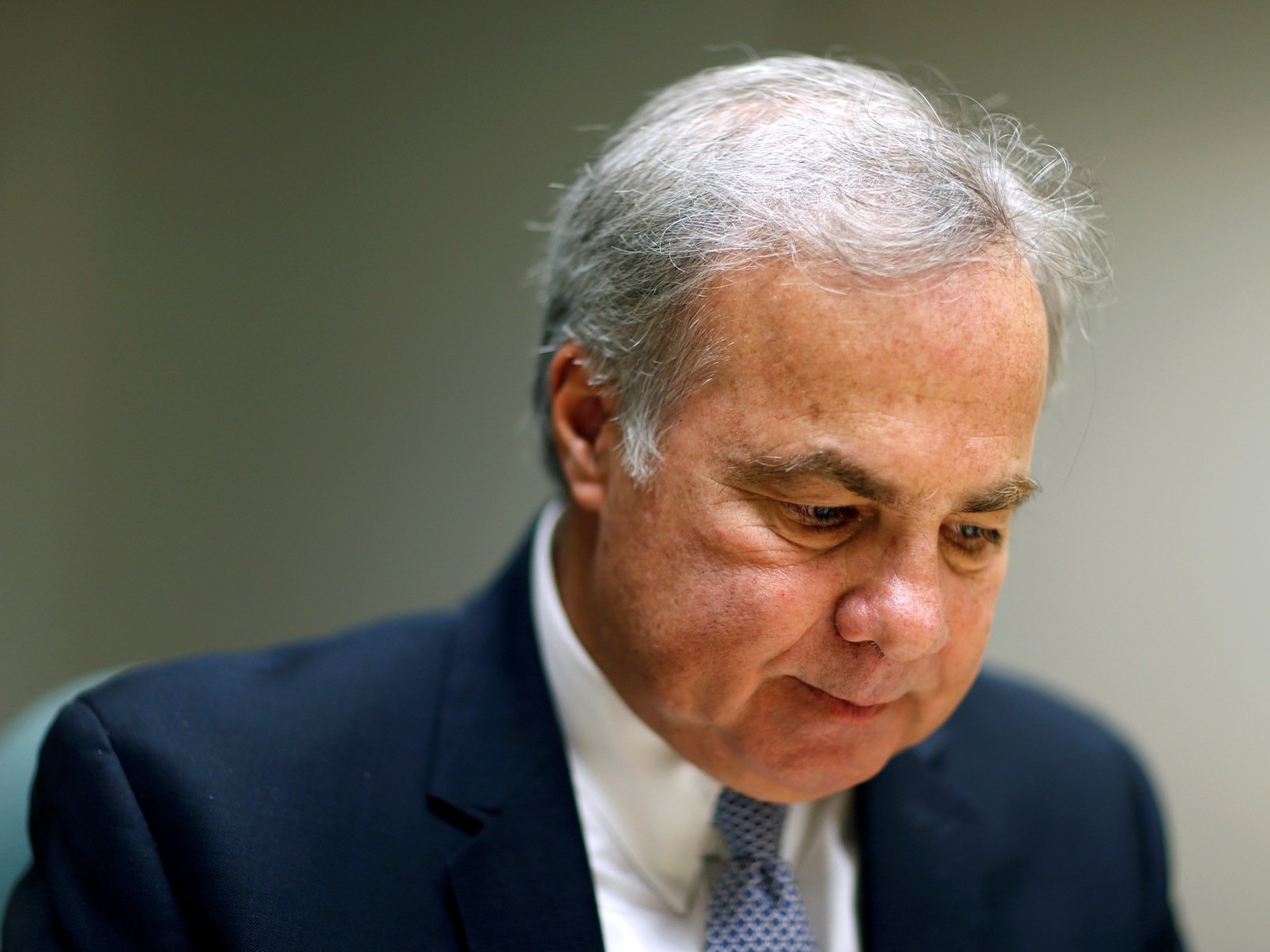 Valeant CEO Joe PapaReuters
Valeant CEO Joe PapaReutersValeant whiffed.
In a third quarter earnings announcement on Tuesday the company reported a smaller-than-expected quarterly profit due to faltering sales of its dermatology products and irritable bowel syndrome drug. It also cut its full-year profit and revenue forecasts.
Shares fell as much as 10% in premarket trading on this report.
This ensures that the pain will continue for a beleaguered stock that has fallen over 90% since 2015’s peak of around $257. Last October it collapsed under the pressure of government scrutiny over drug pricing, accusations of accounting malfeasance, and the discovery of a secret pharmacy within the company that is now being investigated for fraud.
But back to now. Here’s a run down of the bad news:
- After cutting guidance Valeant is now expecting total revenue of $9.55 billion-$9.65 billion for the year, down from its previous forecast of $9.9 billion-$10.1 billion.
- Adjusted earnings are now forecast to be $5.30-$5.50 per share, compared with the previous forecast of $6.60-$7.00.
- The company suffered a net quarterly loss of $1.22 billion, or $3.49 per share. At the same last year the company earned a profit of $49.5 million, or 14 cents per share.
- Excluding items, the company earned $1.55 per share, well below analysts’ average estimate of $1.73, according to Thomson Reuters I/B/E/S.
- Revenue fell 11% to $2.48 billion, compared with the average estimate of $2.49 billion.
- Sales in Valeant’s Branded Rx unit, which contributed 34 percent to the total revenue, fell to $847 million from $1.1 billion in the quarter.
The company took a goodwill impairment charge of $1.05 billion in the latest quarter, reflecting the lower fair value of some U.S. businesses, mainly its Salix division, which makes irritable bowel syndrome drug Xifaxan.
Xifaxan, we should note, has also been a disappointment for the company. Last year former Valeant CEO Michael Pearson said that it would become Valeant’s “billion dollar product” in 2016. But it has not met expectations.
Current CEO Joe Papa said in a statement that the company is continuing to make “further progress toward establishing the new Valeant.”
However, the weaknesses in its dermatology unit show that, despite a new deal with Walgreen’s Pharmacy, the company has not recovered from loss of its internal pharmacy, Philidor, as a channel. Philidor sold some of Valeant’s top derm products like Jublia and Solodyn.
Valeant, which has debt of more than $30 billion, said last week it was in talks with third parties to sell the business and some other assets. One asset it’s in talks to sell is its Salix unit, which Valeant acquired for almost $15 billion in 2015. Japanese drugmaker Takeda is reportedly in talks to buy the unit for $10 billion.
NOW WATCH: LIZ ANN SONDERS: The most unsettling outcome for the markets would be a surprise Trump win













